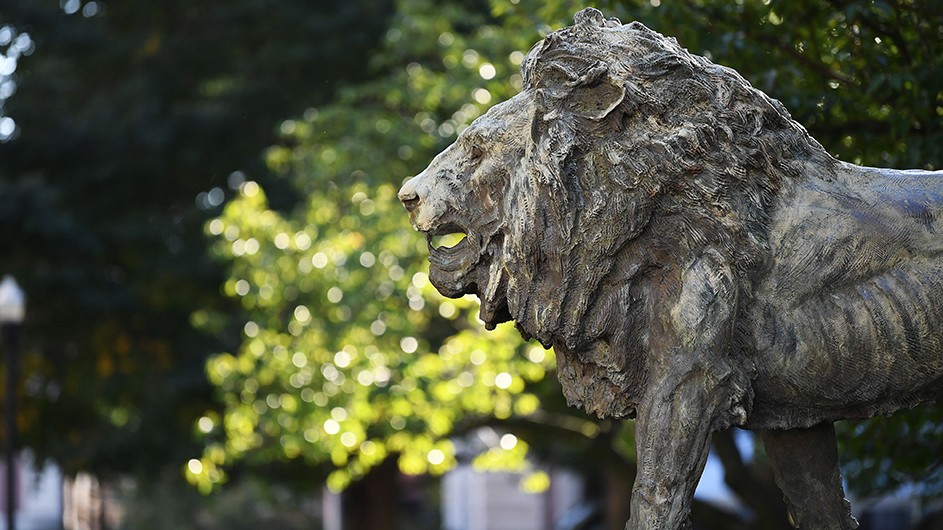Message Regarding Commencement and the Fall Term

Dear fellow members of the Columbia community:
I am writing this at the moment of the one-year anniversary of the onset of the pandemic in New York. Life before that now seems innocent in comparison to what we have endured since. What was taken for granted now seems more precious than ever. The entire world has suffered a lethal and arduous challenge beyond the worst we feared. Each person has lived their own version of this reality—hardships and frustrations along with unexpected revelations, but, for far too many, the tragic loss of family and friends. We join in mourning and memorializing the more than 30,000 residents of our City who died due to the coronavirus.
With this anniversary, however, comes the need to look ahead to the coming year and to plan. There is a practical side of deciding about events and life’s schedules, but also an emotional side of girding ourselves for what remains to be done to be rid of the pandemic. Life’s plans are always best thought of as provisional, but life under COVID-19 has reached new levels of persistent uncertainty. In this period, our minds are attuned to things like the pace and uptake of vaccinations, the implications of new virus variants, and the trajectory of the coronavirus in our City and State. With caveats for the uncertainties ahead, I want to share two decisions about two specific issues ahead of us—our Commencement activities and our return to university life in the fall.
Let me begin with a note of optimism. Hope is always the essential element of resilience, and there are now grounds for hope. As we all know, President Biden has just announced national goals of having vaccinations available for all adults in the country by May 1st and of being able to gather in small groups to celebrate July 4th. In addition, we are heartened by promising evidence of vaccination plans globally, which, of course, has enormous implications for achieving equity and fairness in a time of crisis and for health generally in our very interconnected world. There is progress, provided there is a sustained commitment to our well-known health protocols.
This brings me to Commencement. Despite the progress in defeating the coronavirus, we still are living in the pandemic. The current circumstances in our City and local hospitals, including CUIMC and NewYork-Presbyterian, significantly constrain our ability to hold, in good conscience, any large in-person event in the weeks ahead. The State has not yet issued guidance on commencement ceremonies, but our own public health experts, who have reliably guided us safely through this pandemic, do not deem it reasonable for us to convene at the scale of our traditional ceremonies. Large and dedicated groups in the University have considered a myriad of options, yet, reluctantly and with deep sadness, we have arrived at the conclusion that our University Commencement will again this year be virtual. I know that, given the current state of the world and comparable decisions by other institutions, this outcome is not unexpected. But I also know that the actual decision in the moment is still painful. I have often said publicly that University Commencement is our most cherished event; it certainly is mine. So, this is hard, and I am all the more grateful for your understanding. We will, of course, mark the occasion of the success of our graduates with as much meaning and joy as ever. And we will continue to assess the local conditions with the hope of being able to celebrate individual school Class Days at least with some small in-person outdoor events.
Now I want to turn to the fall term. By then, we expect to have the capacity and supply to vaccinate all Columbia affiliates. Many students, faculty, and staff will have been vaccinated in other locations, including abroad. This and other actions against the coronavirus mean that our goal is to return to normal University life in September. This means the resumption of in-person academic activities across our campuses, for teaching to take place in our classrooms, for undergraduates to be housed in our residence halls, for research and service work to resume, and for our calendar to return to its familiar rhythm. We are dedicated to coming as close to this reality as is safely possible, recognizing that events beyond our control may intervene and that we will need to have an adequate and sympathetic accommodation process in place for faculty, staff, and students, especially our international students who may not be able to return to campus.
In other words, the fall will be, as much as humanly possible, our homecoming.
Of course, there will be many more communications on all these matters in the coming weeks and months. For now, Jean and I send our gratitude and admiration.
Sincerely,
Lee C. Bollinger